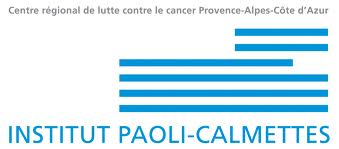Acyl-coenzyme a binding protein (ACBP) - a risk factor for cancer diagnosis and an inhibitor of immunosurveillance
Résumé
Background: The plasma concentrations of acyl coenzyme A binding protein (ACBP, also known as diazepam-binding inhibitor, DBI, or 'endozepine') increase with age and obesity, two parameters that are also amongst the most important risk factors for cancer.
Methods: We measured ACBP/DBI in the plasma from cancer-free individuals, high-risk patients like the carriers of TP53 or BRCA1/2 mutations, and non-syndromic healthy subjects who later developed cancer. In mice, the neutralization of ACBP/DBI was used in models of non-small cell lung cancer (NSCLC) and breast cancer development and as a combination treatment with chemoimmunotherapy (chemotherapy + PD-1 blockade) in the context of NSCLC and sarcomas. The anticancer T cell response upon ACBP/DBI neutralization was characterized by flow cytometry and single-cell RNA sequencing.
Results: Circulating levels of ACBP/DBI were higher in patients with genetic cancer predisposition (BRCA1/2 or TP53 germline mutations) than in matched controls. In non-syndromic cases, high ACBP/DBI levels were predictive of future cancer development, and especially elevated in patients who later developed lung cancer. In preclinical models, ACBP/DBI neutralization slowed down breast cancer and NSCLC development and enhanced the efficacy of chemoimmunotherapy in NSCLC and sarcoma models. When combined with chemoimmunotherapy, the neutralizing monoclonal antibody against ACBP/DBI reduced the frequency of regulatory T cells in the tumor bed, modulated the immune checkpoint profile, and increased activation markers.
Conclusion: These findings suggest that ACBP/DBI acts as an endogenous immune suppressor. We conclude that elevation of ACBP/DBI constitutes a risk factor for the development of cancer and that ACBP/DBI is an actionable target for improving cancer immunosurveillance.
| Origine | Publication financée par une institution |
|---|---|
| licence |





